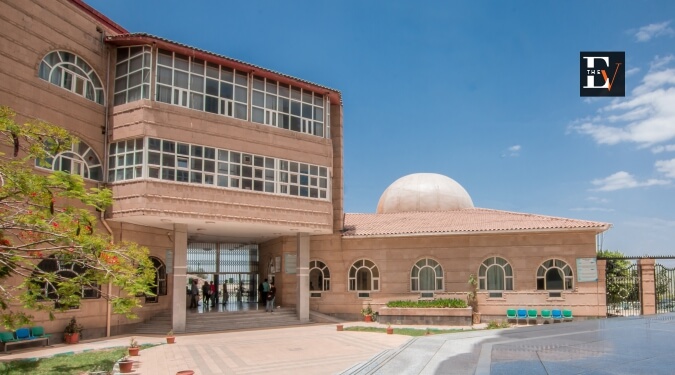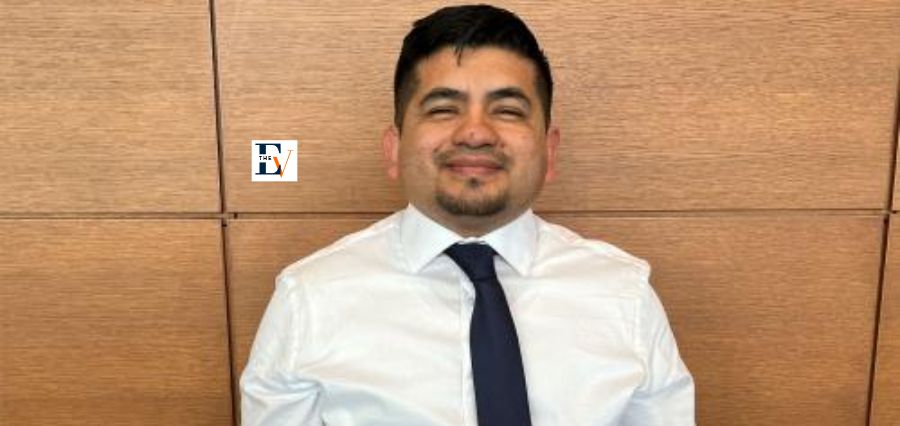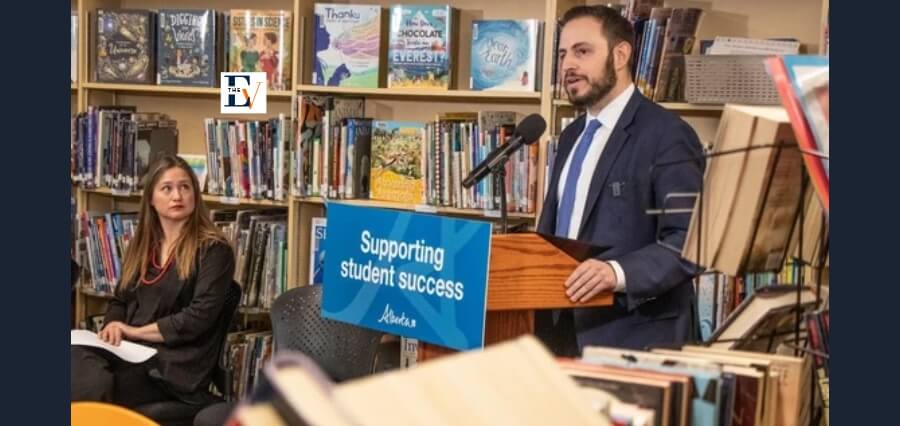The Middle East is undergoing a profound transformation in its educational landscape, with governments, institutions, and communities working collectively to expand opportunities and raise academic standards. This rising educational horizon is fostering a generation of empowered and skilled individuals who can contribute to the region’s growth and compete globally. As the Middle East continues to embrace education as a cornerstone of progress, it holds the promise of a brighter and more prosperous future for its people and the world at large.
As a result of this, some of the prime institutes, like the University of Science and Technology, Sana’a -Yemen (USTY), are disrupting the educational sector in the middle east.
USTY was earlier established in 1994 in Sana’a, Yemen, as the National College of Science and Technology, which has developed enormously over the past twenty-nine years. Over the years, USTY has overrun remarkable academic progress as a major provider of higher education in Yemen, standing head-to-head even with major public universities.
Expanding the Academic Roots
USTY’s own academic programs have seen expansion, and it now has nine faculties: Faculty of Medicine and Health Sciences, Faculty of Engineering, Faculty of Pharmacy, Faculty of Dentistry, Faculty of Computing and Information Technology, Faculty of Administrative Sciences, Faculty of Humanities and Social Sciences, Faculty of Distance Education and Deanship of Postgraduate Studies and Scientific Research.
USTY has a modern teaching hospital that also provides medical care to the public. Its Business School is accredited by the Association to Advance Collegiate Schools of Business (AACSB). In cooperation with foreign universities, it runs degree programs at the undergraduate and graduate levels.
USTY also has four branches throughout Yemen and a special branch for girls in Sana’a as USTY offers separate education for both girls and boys and sixteen learning, research, consultation, and development centers.
It revamped its academic programs to be current, introduced a foundation year, as well as a set of university courses to give a balanced perspective to the students. USTY emphasizes the use of both Arabic and English as it sees the two languages becoming very important in the near future.
Today, the university has achieved a presence and is an active member of major educational associations such as the Association of Arab Universities, Arab Higher Education Institutions, Federation of Universities of the Islamic World, Association of World Universities, Arab Network for Open and Distance Education, Member of International Council for Open and Distance Learning (ICDE), Member of International Computer Driving License (ICDL), Member of the Association to Advance Collegiate Schools of Business (AACSB International).
Its linkages with foreign universities in China, Malaysia, Turkey, Netherlands, Italy, and other regional universities have resulted in the exchange of students, exchange of staff, conducting joint research, and the holding of international conferences in Yemen. Of importance, too, is the work done by the USTY for the community, which has had a major impact on poverty eradication, community/public health, and improving childbirth and maternal care, thus leading to improved community development.
In the works is the setting up of a center for Civil Society Organizations, which will then spearhead the university’s role in development.
Adopting Quality as a Pathway to Excellence
USTY has adopted quality as a pathway to academic excellence, and accordingly, it developed its academic curricula, making its students distinctive in the study and thus having the first seats in pursuing postgraduate studies or in jobs. All this distinction was a result of adopting quality in terms of inputs, processes, and outputs and ensuring feedback.
USTY has been dedicated to catering to the needs of the time, so it worked to open new programs and keep up to date with the demand and adopted the first international conference in the Middle East for medical education.
Staying True to the Mission
USTY has been dedicated to promoting a culture of diversity in terms of the following:
- Students, nationality, color, and gender
- Faculty members but before the political unrest in the country
- Academic programs
Through this, it has been dedicated to equality and inclusion and has also worked to create a suitable environment for Yemeni girls by establishing a separate branch for girls.
USTY has been dedicated to integrating educational technology into the school curricula, and this had a major role during the COVID-19 pandemic.
USTY works on promoting extra-curricular activities such as sports, literature, and the arts, as it provides separate gyms for boys and girls. Many competitions are also held between different teams and with the same mechanism that works to discover any talents through seminars in painting, poetry, debates, etc. The university also participates in many regional activities, such as international debates.
Giving Back to the Community
USTY works on implementing its third mission, which is community service, on the following:
- Opening dental clinics at nominal prices for the community
- Organizing student field visits in health sciences to the community represented by institutions, facilities, and schools
- Community and family awareness/outreach
- Conferences on diseases in the Yemeni environment and others
USTY dedicates special attention to collaboration and partnership with other universities at the regional level by sharing educational and medical research, as well as organizing conferences on human development, achieving the goals of sustainable development, and participating in conferences annually.
Acclamations of the Highest Order
The university has carved the route to success for its several students. Among the most prominent achievements of the graduate level alums of the university are:
- Prime Minister of the Republic of Somalia, Tawakkul Karman: a co-recipient of the 2011 Nobel Peace Prize, becoming the first Yemeni, the first Arab woman, and the second Muslim woman to win a Nobel Prize and the second youngest Nobel Peace Laureate to date.
- Prominent doctors in the world in the professional and research field, such as Ms Ghadir in dentistry and Mr Muhammad al-Muhtadi in human medicine.
- Most of the graduates are in the Americas and Europe.
- The first Yemeni private university provided disciplines at the national level, such as medicine, dentistry, biomedical engineering, and graphics.
- The first Yemeni university to adopt a quality system.
- The first Yemeni university adopted an outcomes-based education curriculum.
- The first Yemeni university to obtain membership in The United Nations Academic Impact (UNAI).
- The only university that hosted the 40th meeting of the conference of the Association of Arab Universities.
- The first Yemeni university to apply for international accreditation.
The university advises other universities to prioritize the quality of service rather than profitability, keeping pace with scientific and technical advancements, which is reflected in the curricula and activities, and education in the university operations is their priority.
USTY supports people with special abilities with the following:
- Presenting the curriculum in Braille’s system for blind people.
- Providing accessible transfers between faculties and centers of the university.
- Providing academic and psychological counselling.






